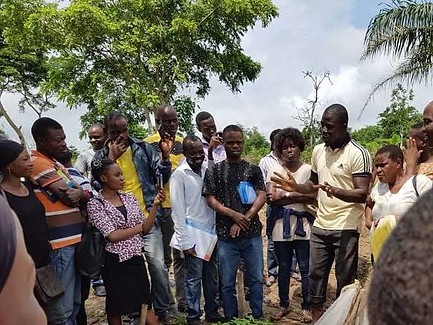“To be a successful farmer one must first know the nature of the soil.” - Xenophon, Oeconomicus, 400 B.C.
Unlocking Synergies: Biochar-Manure Co-Incubation for Improving Phosphorus Availability and Drought Resilience in Semi-Arid Soils
Drought and nutrient limitations in semiarid soils pose significant challenges to agricultural productivity and sustainability. This project aims to develop an innovative solution by creating designer biochars enriched with animal manures that can improve soil health, fertility, and drought resilience. The research will investigate how co-applying or pre-incubating biochar with manure affects soil nutrient dynamics, particularly phosphorus availability, and how these amendments impact crop growth under different moisture levels. The project will use locally available waste biomass, such as invasive plants and wood waste, to produce cost-effective biochars using a portable kiln. The findings will be shared with farmers, ranchers, and biochar producers through workshops, field days, and online resources to promote the adoption of biochar-manure amendments as a climate-smart soil management strategy. By enhancing soil quality and crop yields in water-scarce regions, this project contributes to sustainable food production, environmental conservation, and climate change resilience in semiarid agroecosystems.

Increasing youth participation in the production of indigenous vegetables and fruits using climate-smart approaches leveraging locally available resources
This research is expected to increase awareness of the nutritional value of indigenous fruits and vegetables, increasing their production and subsequent consumption. In addition, this study aims to heighten awareness amongst youth about how to enact climate-smart soil management practices that will enhance AIFV production, as well as introduce them to digital tools that will help them employ these practices.
Composition and adsorption mechanism of metabolites produced by roots of different hemp varieties grown in a synthetic soil habitat
-
Understanding the interactions between plant organic molecules and soil minerals is critical in biogeochemical processes. The adsorptive behavior of metabolites on soil mineral surfaces can be influenced by the chemistry and content of root exudates. Our research goal is to clarify the intricate and mechanistic processes of the interaction of root exudates and soil minerals, which have thus far been examined using batch experiments, utilizing this novel approach, the use of rhizosphere-on-a-chip.


Monitoring the short- and long-term variability and sensitivity of biological and biochemical soil health indicators in agroecosystem
-
Evaluation of biological soil health indicators in climate-adaptive agroecosystems
-
Understanding the spatial-temporal variability of soil health indicators

Understanding the use of climate-smart agricultural practices for value-added hemp CBD production
Implementation of climate-smart practices to improve hemp production
•Organic hemp fertility management systems
•Alternative use of hemp residue (biochar) as a soil health amendment
Examining the long-term impact of organic amendments on soil organic carbon and phosphorus in low-fertility input systems
A substantial part of my dissertation involves understanding how a one-time compost application affects the:
-
Maintenance of organic carbon in intensively cultivated marginal soils with low soil organic carbon
-
Spatial and temporal dynamics of soil organic carbon in low-fertility input agroecosystems
-
Long-term phosphorus availability in no-fertility input dryland organic winter wheat in the Intermountain West.
